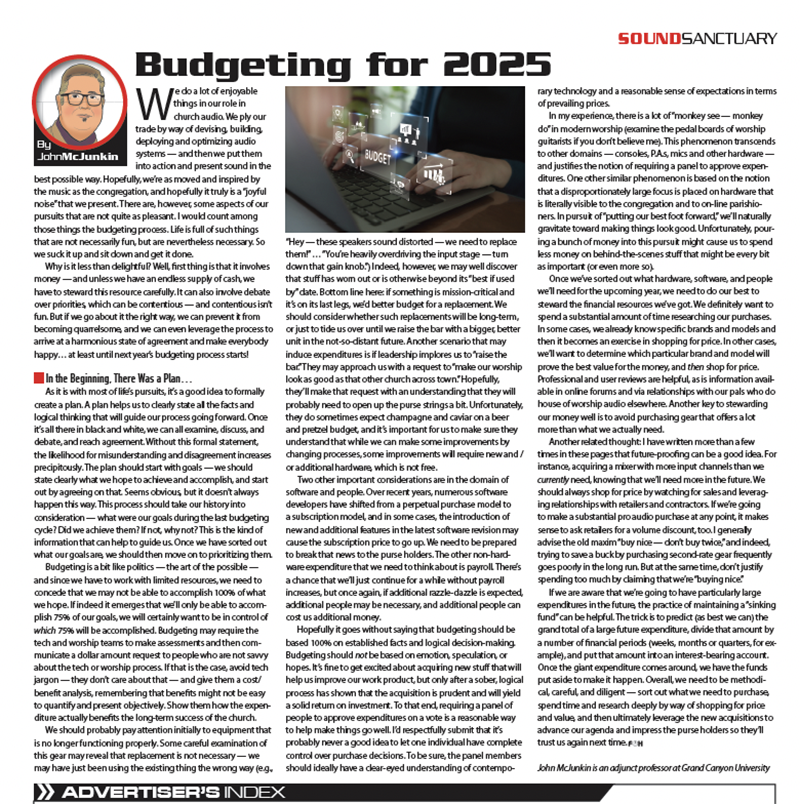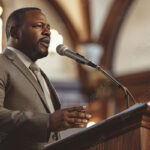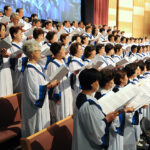One of the greatest things about being the head of the audio department at a large or medium sized church is that there are usually a lot of people from the congregation who want to volunteer their services in the audio department. One of the worst things about being the head of the audio department at a large or medium size church is that there are a lot of people in the congregation who want to volunteer their services in the audio department.
If I can put it another way, let me say some people are suited for audio and some aren’t. So, your job is to find those people who want to volunteer and those volunteers that have an aptitude toward audio. Don’t get me wrong, everybody can be trained to hear well and mix well, but there are those who gravitate toward it naturally. As the designated teacher for your house of worship, you will attempt to find those people. Hopefully, you will embrace your role as a teacher with focus and clarity. Your students are counting on you to make real audio technicians out of them. I never really like my teachers in school, so it took me quite a while until I could teach well.
Organizing the Team
Anyway, your first and foremost goal should be to make all your volunteers as good as you are (or better) in the field of sound. I have taught a lot of people to mix house of worship audio, and it is both exciting and satisfying to take somebody who knows little or nothing about audio and turn them into a sound engineer.
So, you will start by identifying those people in your congregation who want to volunteer as audio techs. An announcement can be made during a Sunday service, or maybe an invitation can be put in the weekly bulletin. I suggest you invite all the potential volunteers to meet on a Saturday morning. Giving up a Saturday morning raises the bar a bit. Most of us will only give up our Saturday morning for something we really want or think is important. Right off, you will find out who in the congregation is serious about volunteering. Once you have your team of volunteers, (I realize you may only have one person), it is time to plan their training.
The Education Process
Separate your training into two divisions. First, train your volunteers on your house system. Secondly, you’ll want to train your people on the principles of audio and sound.
With regards to your individual house of worship sound system, let’s start with the signal flow. Beginning with plugging in your microphones on stage, the audio signal will travel through the mic into the microphone cable. Plug your mic cables into the stage box snake. That signal will travel through the snake into your mixing board. Here at your board you will have to spend most of your time. A mixing console can be a very intimidating piece of gear for anyone just learning the ins and outs (pun intended) of audio.
Take as much time as you need here to get your new students as comfortable as possible with whatever board you have in your worship sanctuary. From input gain knobs to channel faders, have them take notes, take pictures with their cell phones, twist knobs, push faders, etc. Get your team educated on your mixing board. If the audio signal leaving the console goes off into any outboard gear, make your technicians as comfortable with the outboard gear as they are with the board itself. The signal will travel back into your snake and on to the returns in your stage box. From there, the audio will travel into power amps (or into powered speakers) and from the power amps to the speaker boxes. Make certain that everyone on the audio team knows how to plug all cables along the signal path in and out. If something is not working during a service or a rehearsal, a complete understanding of the signal flow is really handy. More often than not, speakers stop making sound because of a bad cable (or wrong patch) between the microphone the speakers.
Once your technicians are familiar and comfortable with your church audio system, it is time to teach them about the principles of sound. At this point, I suggest you find a good book that everyone from your church can use. House of Worship Sound Reinforcement is a great book to take somebody who knows nothing about audio and turn them into a competent technician. You can find that particular book on Amazon. (I should admit I wrote the book. I realize it’s a shameful plug, but at the same time, this is an excellent teaching tool.) That said, if you don’t want to teach out of a book, put together a teaching plan your techs can take home with them or put in a notebook and keep handy. Learning about audio takes a lot longer than learning how to turn on a sound system and operate a mixing board. However, having the ability to understand how sound works in your church, how to identify frequencies, how to deal with feedback, etc., will help you become a great mixing engineer.
The Benefits
The better you are at your job of sound, the better your services will sound and the more fully your congregation will be served. As an audio guy, I think serving through sound is a fantastic calling and an essential part of any good service. That said, there are a couple of things I’d like to comment on before I go.
The first is that many churches pay their mixing engineers and their musicians. Personally, I think that’s a good idea. Paying the techs or players (or both) raises the bar on each these positions, and I think this improves the overall results.
Secondly; maintaining your sound system is extremely important. I don’t recommend that you wait until things break before you fix them. However, we’ll examine that topic another time.



